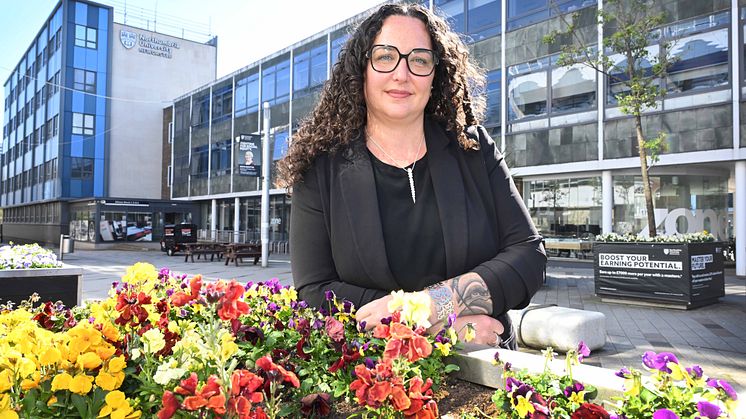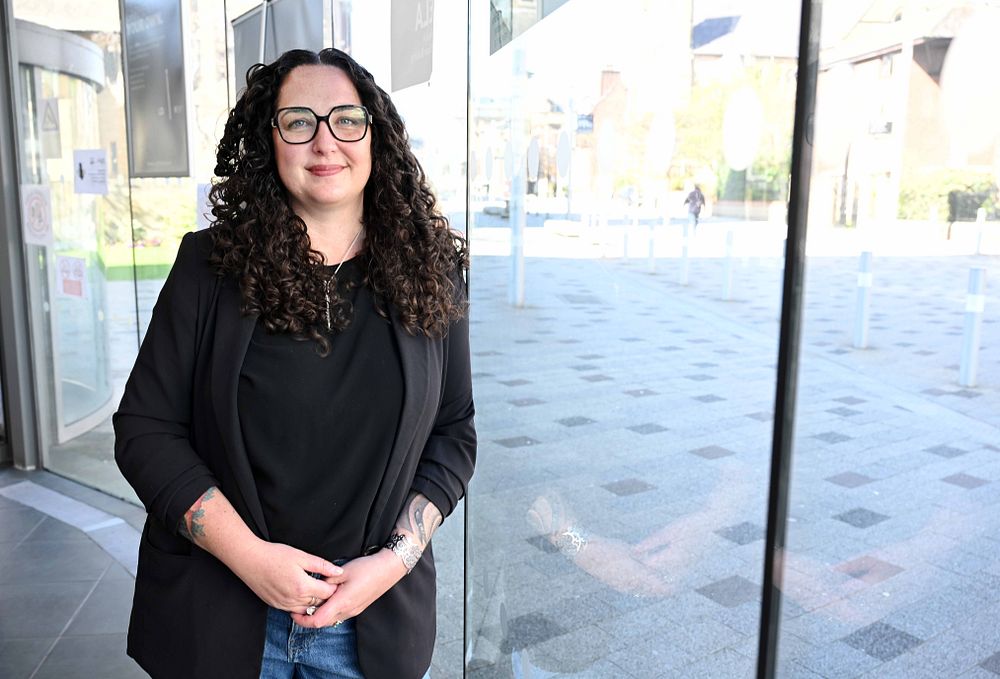
Press release -
Researchers explore an alarming rise in digital violence against women
An international team of researchers have been awarded over £1 million in funding to explore the extent of digital violence against women in a groundbreaking study across Europe.
Advances in technology have transformed the ways in which violence against women can be perpetrated. Like so many other aspects of life, it has become digitalised, with reports of online violence and abuse targeting women now growing at an alarming rate.
Over the next three years, the study, which is led by Northumbria University, will examine the nature, scale and support needs of women who are victims of digital violence which can occur in many forms. As well as online harassment and threats, this might include non-consensual sharing, capturing or creating false intimate images, sometimes referred to as revenge porn, upskirting, or deepfakes.
Dr Stephanie Fohring, an Assistant Professor in Criminology at Northumbria, is leading the study and says, at present, there is limited research available on the subject. She believes a 106 per cent increase in calls made to the Revenge Porn Helpline in the last year demonstrates how rapidly the situation is escalating.
“Digitalised violence against women and girls is an emerging and deeply concerning issue and the impact on victims can be devastating,” explained Dr Fohring, whose research explores the psychological aspects of violence against women, and their experiences of the criminal justice system.
“It is believed that online abuse isn’t as serious as we understand it to be. We know the impact can be severe for individuals affected, but more generally, it can also have a negative impact on women and girls safe access to online spaces, and therefore it is important to raise awareness that this is happening and on an incredible scale.”
Existing research in this area has largely been conducted in Australia and the UK to date and therefore not a lot is known about what is happening with women online across Europe.

Led by Dr Fohring, the research team will conduct the largest survey of its kind across the continent, measuring how the abuse has impacted the wellbeing of survivors, as well as the frequency and type of victimisation women are experiencing. It will also identify levels of engagement with support services and law enforcement, followed by an additional study into the police response to digital violence against women.
In particular, the team will focus on documenting the experiences of marginalised women, including members of the LGBTQ+ community and Black and minority ethnic groups.
Professor Witold Klaus from the Institute of Law Studies of the Polish Academy of Sciences, said: “The same as all forms of victimisation, digital violence is also not spread equally across societies, and some groups are more exposed to experiencing it. This is exactly the case of queer women and especially trans women. Working closely with LGBTQ+ organisations, our goal is to better understand how this group is affected by digital violence.”
The study brings together researchers from Lleida University in Spain, Orebro University in Sweden, South East Technological University in Ireland, and the Polish Academy of Sciences. Funding opportunities for the project have been organised by Collaboration of Humanities and Social Sciences in Europe (CHANSE), and New Opportunities for Research Funding Agency Cooperation in Europe (NORFACE).
At Northumbria, researchers recognise that no single discipline has the answers to the complex problems of gendered violence and abuse and have developed interdisciplinary collaborations to analyse and address the social, political, cultural and technological structures that exist and enable many forms of violence and abuse.
Discover more about interdisciplinary research on Gendered Violence and Abuse at Northumbria.
If you have experienced any digitalised violence the Revenge Porn Helpline can offer advice and support: https://revengepornhelpline.org.uk/or 0345 6000 459
FURTHER INFORMATION:
Visit the Northumbria University Research Portal to find out more about Dr Stephanie Fohring’s work.
Dr Stephanie Fohring is the lead academic for the project titled WOW: Women’s Online Wellbeing – an examination of digitalised violence against women. Find out more at https://chanse.org/wow/
NOTES TO EDITORS:
CHANSE Programme (Collaboration of Humanities and Social Sciences in Europe) and the NORFACE Network (New Opportunities for Research Funding Agency Cooperation in Europe), organised funding through the proposal call, Enhancing well-being for the future.
The project is supported by the following research funding agencies: The State Research Agency (AEI, Spain), UK Research and Innovation (UKRI, United Kingdom), the Swedish Research Council for Health, Working Life and Welfare (FORTE, Sweden), and the National Science Centre (NCN, Poland).
Topics
UNIVERSITY OF THE YEAR 2022 (Times Higher Education Awards)
Northumbria is a research-intensive university that unlocks potential for all, changing lives regionally, nationally and internationally.
Two thirds of Northumbria's undergraduate students come from the North East region and go into employment in the region when they graduate, demonstrating Northumbria's significant contribution to social mobility and levelling up in the North East of England.
Find out more about us at www.northumbria.ac.uk
--- Please contact media.communications@northumbria.ac.uk with any media enquiries or interview requests ---








